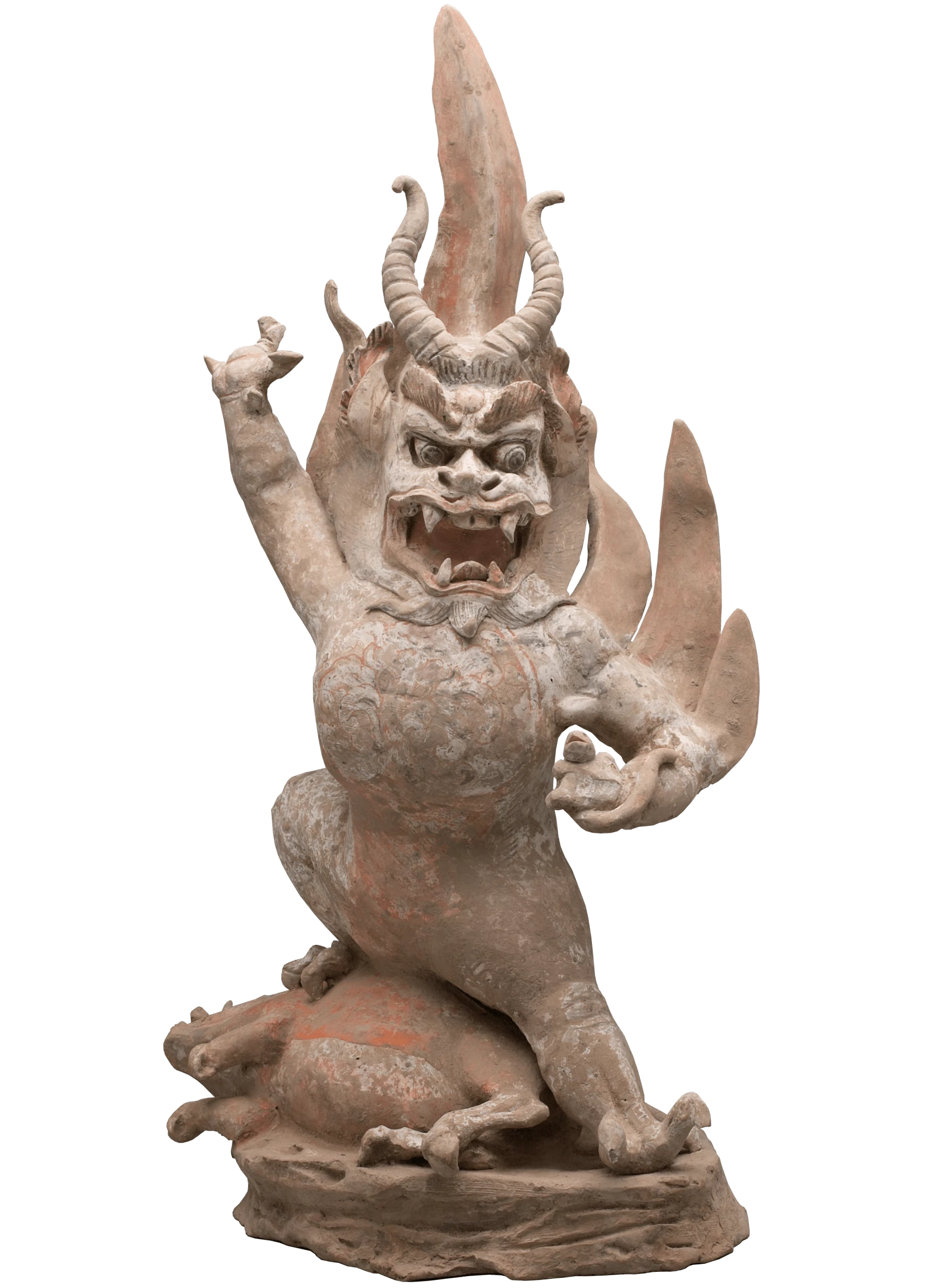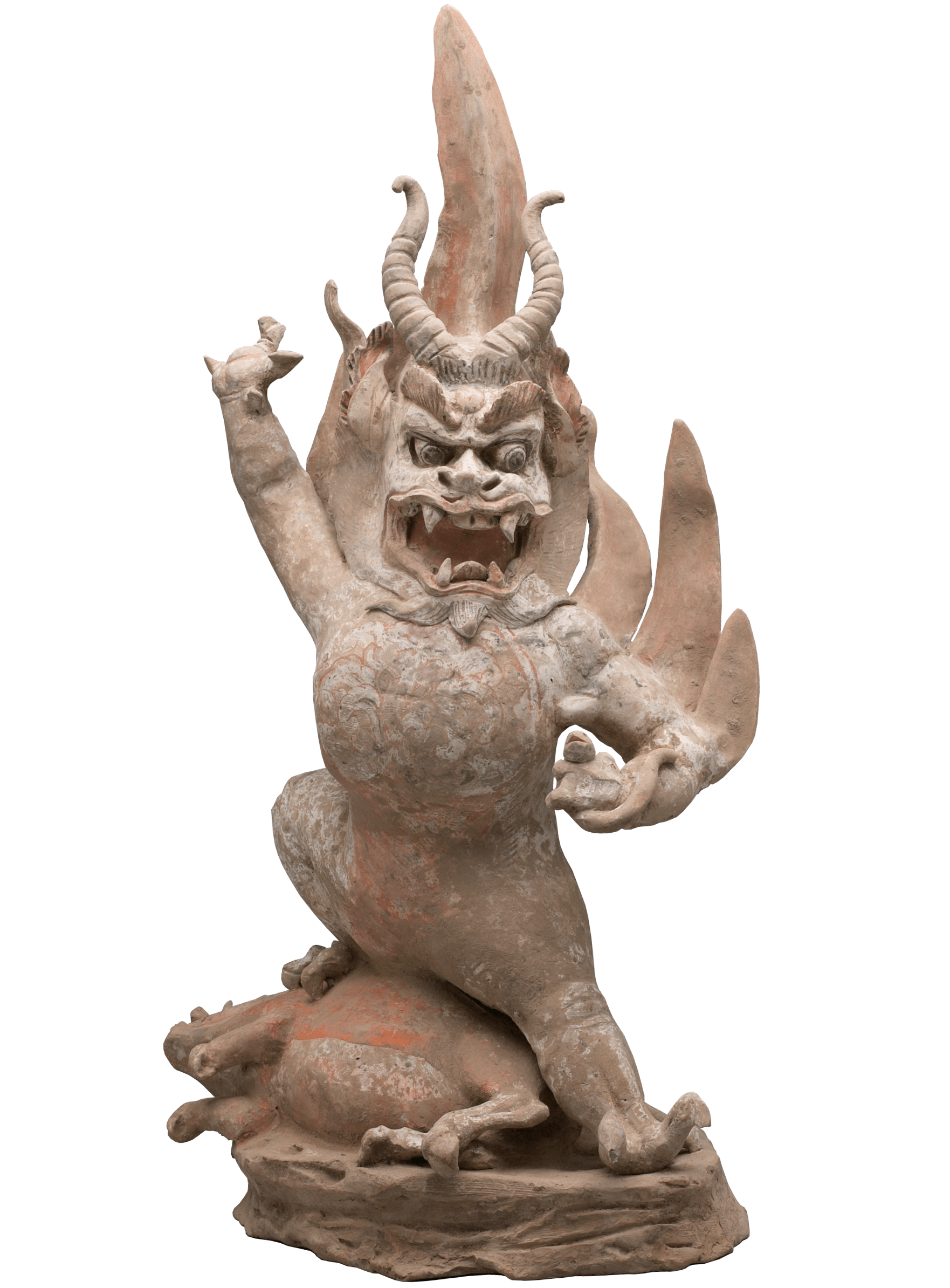


In ancient China it was widely believed that humans have two souls: the hun and the po. After death, the hun left the body, but the po stayed behind, inhabiting the corpse. Burial was a lonely place for the po, left by themselves in the tomb, so a tradition developed to leave objects in the tomb that the po might need. These burial objects, called mingqi, might include eating utensils, musical instruments, a favorite item of clothing, or a warrior’s preferred weapon.
Naturally, wealthy individuals buried themselves with more elaborate mingqi, eventually including figures of dancers to entertain their po and model horses and camels for them to ride. And for a tomb this luxurious, you needed some security. Enter zhenmushou, the bodyguards of the afterlife. These earth spirits were intentionally ferocious looking, often with bared fangs and horns. The Zhenmushou above is pictured victorious, a wild boar defeated underfoot. Wealthy tombs were often home to four of these little badasses, one placed at each of the four corners.
